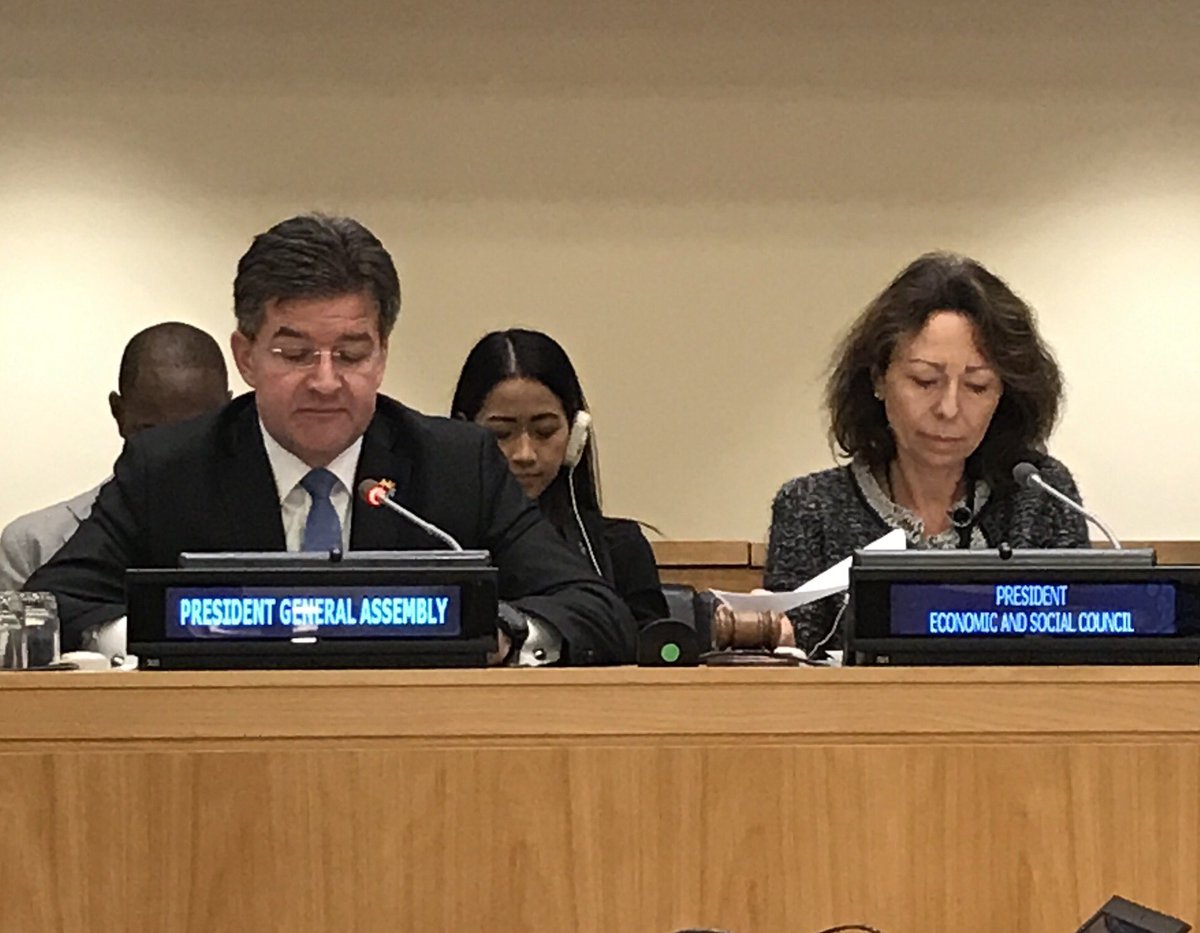Special Meeting of the ECOSOC on “Aftermath of recent hurricanes: Achieving a risk-informed and resilient 2030 Agenda

– As delivered –
Statement by H.E. Mr. Miroslav Lajčák, President of the 72nd Session of the UN General Assembly, at the Special Meeting of ECOSOC on “Aftermath of recent hurricanes: Achieving a risk-informed and resilient 2030 Agenda”
Madam President, Deputy Secretary-General, Excellencies, ladies and gentlemen,
Thank you, Madam President, for convening today’s ECOSOC Special Meeting. It complements the High-Level Meeting on Hurricane Irma, which I jointly convened with the Secretary-General last month. The message from that meeting is clear: there is need to build resilient societies, invest in disaster risk reduction, and combat the devastation from climate change.
The recent disasters devastated the lives of countless people across the Caribbean and the United States. In Antigua and Barbuda, the damage was catastrophic. The whole island of Barbuda was rendered uninhabitable for the first time in centuries.
During the General Debate, Prime Minister Skerritt recounted “desolation beyond imagination” in Dominica. The cost of damage and recovery is immeasurable. Already we know that more than US$60 million is needed to address the immediate urgent needs arising from Hurricanes Irma and Maria alone.
Our response must therefore match the magnitude and urgency of the situation. In this context, allow me to make three points:
First, while we cannot prevent disasters, we must be better prepared for their impacts.
In the aftermath of these disasters we see loss of life, destruction of property and disruption of livelihoods and economies. We cannot completely prevent disasters, but we can increase resilience and reduce risks.
These disasters remind us that climate change is not just the subject of philosophical debate. They are already a reality lived by millions of people around the world. It is important to take urgent action to mitigate the effects of climate change.
As we approach COP23 next month, we have an excellent opportunity to reiterate our commitment towards the implementation of the Paris Agreement. We must also make sure we are on track in implementing the 2030 Agenda and the Sendai Framework for Disaster Risk Reduction.
Many countries lack adequate capacity to respond to the increasingly stronger and more frequent weather systems. More must be done to respond quicker and more coherently, especially to restore basic and emergency services. Sectors such as health, water and sanitation, shelter and food require urgent attention.
The impact of these disasters has made clear that, and this is my second point, vulnerability is an obstacle to achieving the Sustainable Development Goals. Vulnerability comes in various forms: climate vulnerability, vulnerability to natural disasters, vulnerability to conflict and instability, economic vulnerability. There will be a significant set-back in the efforts of the affected countries.
Large-scale population movements can reduce access to essential services and livelihood options. They increase exposure to violence, poverty and insecurity for both displaced populations and host communities. These concerns should be reflected in the consultations on the Global Compact on Migration.
Limited resources will be diverted to the immediate recovery efforts. The loss of income and productivity will constrain economic activity and growth. The cost of long-term recovery and rebuilding dwarfs the financial means of most of the affected countries.
To quote Prime Minister Skerrit of Dominica “[their] capacity to earn has now been significantly compromised even before [they] have gotten off the ground”. These countries are now forced to go seek financial aid just to provide the basic needs of their people: water, shelter, food. They need our assistance. They need our humanity.
There is need to build resilient societies, invest in disaster risk reduction, and combat the devastation from climate change.
My third and final point – We must ‘build back better’ amidst recovery efforts.
We can use this as an opportunity to “build back better”. I am encouraged by the pledge announced by the Prime Minister of Dominica to rebuild and become “the world’s first climate resistance nation.” In Dominica and elsewhere, this may indeed be a chance to redesign settlements, integrate clean energy, build infrastructure and reinforce water and sanitation systems.
I encourage all key stakeholders to support the recovery and rebuilding efforts in all the affected countries. Institutions should devise creative solutions that will allow already highly indebted countries to access funding to rebuild with resilience.
Partnerships with governments, the private sector, development partners and international organisations must play a significant role in supporting the recovery efforts. It is the through these kinds of partnerships that countries and the UN system can be better prepared for and to respond to future catastrophes.
In conclusion, Ladies and gentlemen, your discussions here today will have direct impacts on people. Let us work towards effective action across the United Nations system to support the long-term recovery and resilience through our common efforts.